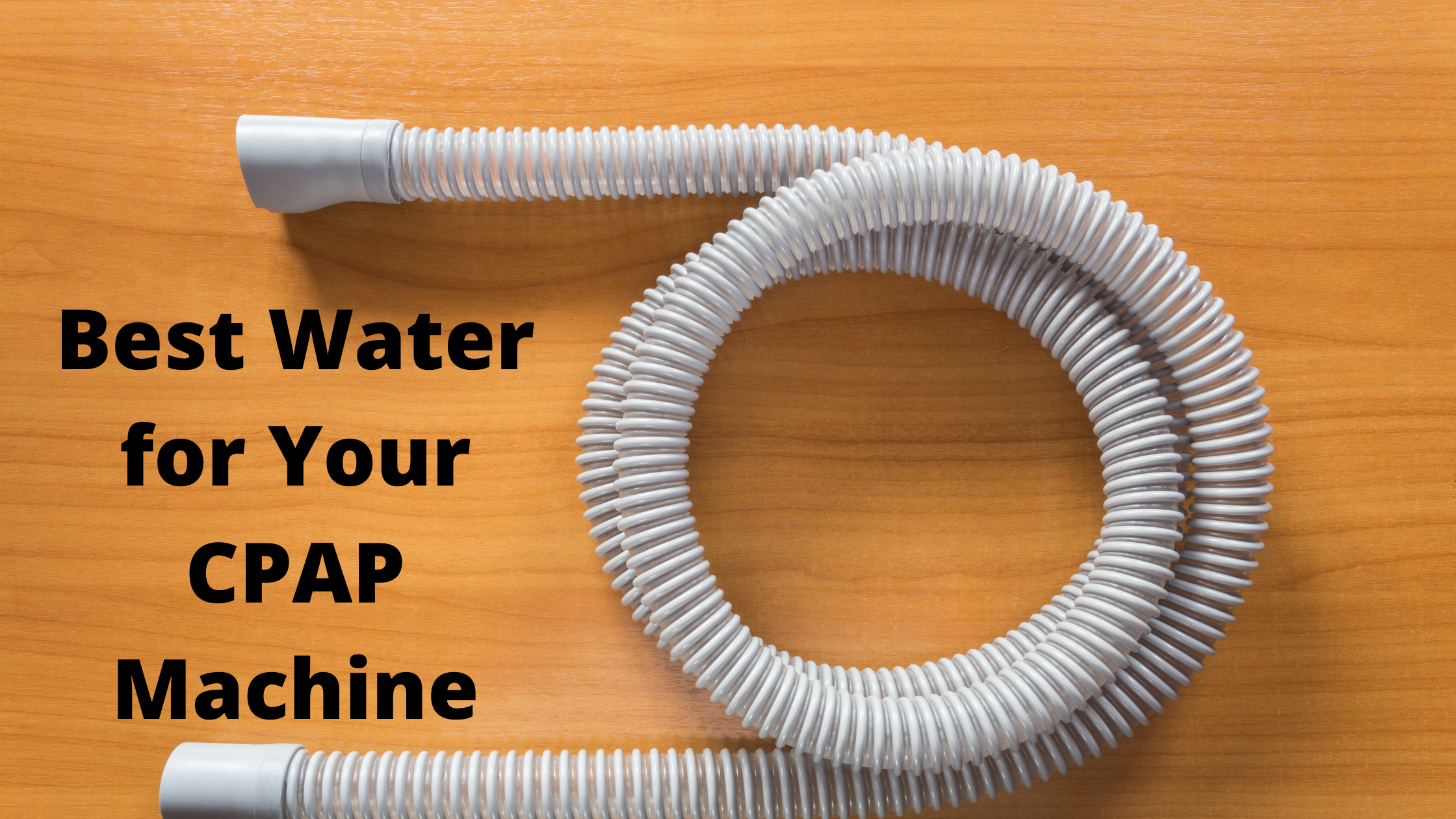
Continuous Positive Airway Pressure (CPAP) is a machine used for those with obstructive sleep apnea (OSA). OSA is a sleep disorder that is characterized by multiple cessations in breathing throughout the night. OSA can have negative consequences like excessive daytime sleepiness, weight gain, high blood pressure, heart disease, etc. It's important to be properly diagnosed using a sleep study, or a polysomnography, and then treated with a CPAP.
CPAP therapy provides significant relief to those with OSA. Untreated individuals often gasp and choke while trying to breathe. CPAP delivers enough pressurized air to help sleepers breathing passages remain open. THis can significantly reduce sleep apnea symptoms, but can cause some side effects like dry mouth.
Humidifiers for your CPAP can reduce some of these negative issues. Some models even have built-in humidifiers to make it easier. It's important to take care of your CPAP by using the proper water. Is that tap, or is distilled the best? Continue reading for more information about why distilled is the best water to use in your humidifier.
Benefits of a CPAP Humidifier
The continuous flow of air that comes from CPAP can be very harsh and cause your throat and mouth to dry out. This irritation can lead to non-adherence because of the discomfort. Other side effects include nose bleeds, sinus congestion and dry mouth. A CPAP humidifier adds water to the pressurized air to increase humidity and make breathing with a CPAP device more comfortable.
If you experience any of these side effects and don't own a humidifier, then you may want to consider investing in one. It's also important to clean your device and mask so you can avoid illnesses from substances like mold and bacteria.
Why Distilled Water is Preferred
Tap water is certainly the easier choice of the two, however, it can contain mineral deposits and other chemicals that can damage your machine and promote bacterial growth. Bottled water options can include purified water, spring water, mineral water, or distilled water.
Purified water contains some mineral content in order to provide healthy minerals for drinking. Spring water is rich in mineral water and naturally filtered underground. Mineral water is an underground water source and contains a minimum amount of total dissolved solids. Distilled water is the pursed form and is produced by boiling water and condensing the vapor back to liquid.
Distilled is the best for CPAP because it's pure water free from minerals and bacterial. Hospitals, labs, and anywhere else that requires sterile cleaning use distilled water to prevent limescale buildup on devices. Using the wrong water can lead to this build up, scaling, bacterial growth and airway irritation or machine breakdown.
Obtaining Distilled Water
Distilled water is better bought than distilled yourself. Distilling water is fairly simple, but it's best to purchase distilled water for use in your CPAP humidifier. The makers of distilled water have certain quality control measures to make sure that distilled water is processed correctly.
Distilled water is easy to find. Most grocery stores, drug stores, mini markets and gas stations have it. CPAP suppliers also carry distilled water, as well as some online retailers that offer subscriptions so you don't have to worry about ordering it when you run out.
Tap water is not a substitute because it contains the minerals that can cause buildup and scaling in your CPAP machine. Tap water also may contain chlorine or fluoride that are not good for your machine. Even if you boil it it to kill bacteria, it will still contain that material content that can damage your machine.
If you have any questions or sleep disturbances regarding your CPAP, please click the orange button to take a free online sleep test to get in contact with sleep health professionals. .
https://www.sleepfoundation.org/cpap/should-you-use-distilled-water-for-a-cpap-machine

